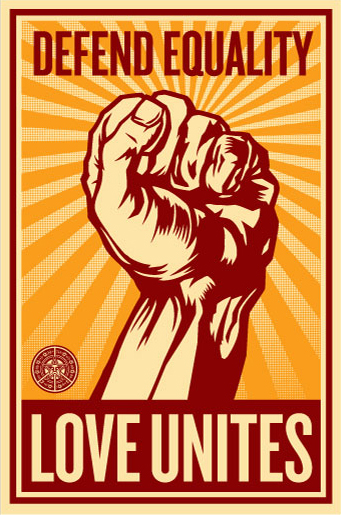The Third DepressionBack to Article »
There was the Long Depression, then the Great Depression, and now we are in the early stages of a third depression. This one is primarily a failure of policy.
20.
Dallas
June 28th, 2010
9:47 am
When I look and see that only of a third of the stimulus was for true job creation, I can understand why unemployment remains high. But when I look at the larger picture of the financial systems stabilization efforts, 2 wars, aid to states, the rescue of the auto companies, and Fannie and Freddie, I can also see why the jobs portion of the stimulus wasn't bigger. A lot of folks needed the federal government's help and got in 2008-2009. Before we slam the government for what they haven't done, let's keep in mind what they have. The efforts over the last 2 years by willing members of the Federal government have been extraordinary and in many ways exemplary. We were faced with near total collapse of the US economy and now we are not. The federal government did its job to save off collapse.
The issue now is should the federal government do more to try to get us back to normal, whatever normal is? I don't know. When I think about the last great depression, you and others, have argued that WWII is what ended it. Well, was it the war, itself, which lasted ~ 7 years (1939-1945). Or was it the rebuilding of Europe and Asia post hoc that restored "effective demand." Either way it took a long time and a huge amount of demand to break that cycle. Is that what it takes to defeat a crisis this deep, 10-15 years of stimulus. And can we create those levels of "artificial" demand? In my mind those questions remain unanswered and perhaps unanswerable.
Recommended by 496 Readers
21.
HIGHLIGHT (what's this?)
Washington State
June 28th, 2010
9:48 am
While optimism as opposed to fear has just as important an effect on the economy as almost any government action (A business owner told me that she has clients whose salaries were cut by 8% and then cut their owns spending by 40%), I do believe that your understanding of the day-to-day experience of people is right on.
The woman who cuts my hair and her husband who does nails put it simply when they said that they read that while they read that economy is getting better, what they see is that many people still don't have jobs. It comes down to that. Very depression-like.
Recently I rented out a house. The biggest fear people had? Is this house going to suddenly be in foreclosure or sold? I found out that many renters have had this happen and have been thrust into homelessness because they can't immediately come up with the cash to get into a different home. Very depression-like.
I had a man come knock on my door proposing a plan to do landscaping in my yard. He has lost his business and applied for dozens of jobs. Very depression-like.
I know families who are doubling up to live in the same house. There is a glut of family heirlooms for sale on ebay. The high school had a "shop" where students could choose a donated prom dress or suit instead of buying one. There are "For Lease" signs all over town where businesses once were at least making it. The local church-sponsored meal nights are overflowing. Very depression-like.
There are benefits to be sure, such as the renewed green spaces where houses were supposed to be built, and the appreciation of the small things in life. Further, the high school students I see are showing less entitlement, less pride in brand-name clothes, and more awareness of their responsibility as young adults to help their families while they secure a good education.
Still, I believe very strongly in your premise. The government's role is paramount in jump-starting the economy. Deflation makes everything worse, with property values going down, down, down as mortgage payments stay the same and credit is tighter. Very-depression-like.
A stimulus check sent out right now, this week, would send folks on that trip to visit family, send them to the store for barbecue supplies, and send them back-to-school shopping. A follow-up check in November could boost the holiday sales. How can that hurt? It just might make the difference in both the needed optimism and the increase in employment. Isn't it worth a shot?
Recommended by 743 Readers
28.
HIGHLIGHT (what's this?)
Brooklyn, NY
June 28th, 2010
10:30 am
Only selfish fools oppose the spending needed to put people back to work.
Unfortunately, that's an accurate description of most of the politicians who have pretended to be on the side of workers.
Never mind the Republicans -- they've always been the party of the nobility.
But the Dems have been just as bad. The only difference is that they lie better, convincing millions of working people to put them in office on the promise of improving their standard of living.
Unfortunately, the demonization of unions has been so successful that untold numbers of workers reject organizing as a necessary condition for acquiring the power to have their demands met. The impotence of millions of people who oppose the wars and favor single-payer health care demonstrates this. Only a force capable of shutting down society can overcome the ruling class's intransigence, and that means organized labor and the strike.
It's all well and good for Paul Krugman, with whom I do not disagree, to explain how capitalist short-term greed actually hurts the ruling class by undermining economic stability and destroying markets. But stupid and short-sighted as they may be, the wealthy are still wealthy. Without extreme pressure from an organized, politicized labor movement, nothing will change for the working class.
It must begin with organized labor and the refusal to continue electing the back-stabbing Democrats. If the know-nothing tea party movement can generate so much support in so short a time, a labor party advocated and supported by the most powerful unions can surely rally working people around Main Street issues and put up candidates who -- unlike Obama -- will work to make good on their campaign platforms.
Recommended by 565 Readers
29.
HIGHLIGHT (what's this?)
TS
Hamburg
June 28th, 2010
10:33 am
I think Krugman is wrong on this one.
Debt-fueled growth of just any kind (as opposed to the kinds that are constructive and sustainable) is also a form of inflation, and it makes perfect sense to try and avoid that kind of inflation, since any nation whose people 'benefit' from that growth will also have to pay for it in the future sometime, therefore putting future generations at a disadvantage.
In the 1950s intellectuals used to worry about the environmental and human costs of democratizing very high standards of living, now people like Krugman don't seem to worry anymore, because worrying about that is not compatible with furthering the Western pipedream of 'more and more' for 'less and less'.
Trying to cut down on what you owe to big corporations, and the resulting deflation, are perfectly acceptable ways to scale back and get back to basics on an economy gone badly awry, i.e., and economy almost totally dedicated to high tech solutions to basic human problems for which the solutions are largely known, i.e., social, ethical, and political problems.
Of course, 'good growth' is possible, but only when all past debt is forgiven or repaid. Otherwise, it's the same old well-worn path to wars and political/economic domination.













